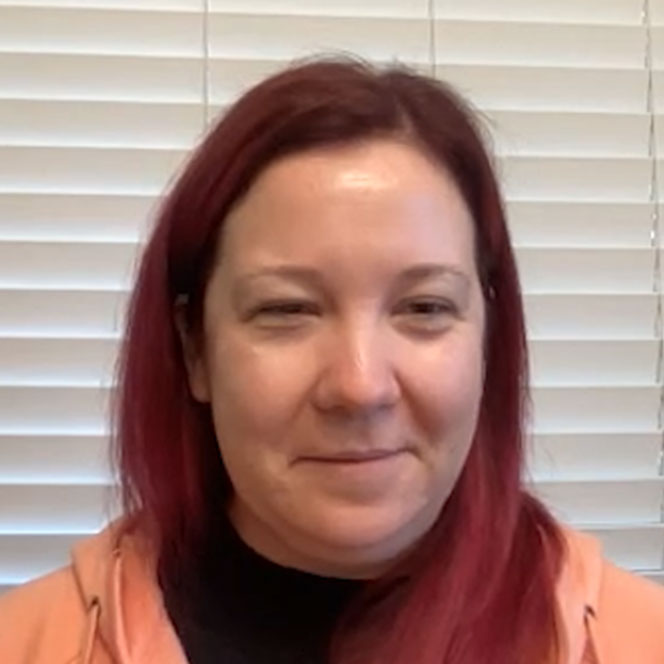Sustained action, not just words, needed to address gun violence
ACP has an extensive and longstanding policy in place on reducing firearms injuries and deaths in the United States.
For the first time, my kids are attending school with armed security guards present. Remarkably, they made it to nearly the end of high school before this happened, but it was no less disconcerting to them when they saw these guards on their first day. The guards were likely there because, during the previous school year, only a few miles away at another high school, a student pointed a “ghost gun” at a fellow student's head and fired—the victim survived after weeks on life support and multiple surgeries—and the school is still recovering from the trauma the students and faculty experienced during lockdown. Yet another local high school had a gun scare lockdown just a few days after this school year started. It is no longer a matter of if gun violence will impact you or your family—or your practice setting—but when.
As ACP's President, Ryan D. Mire, MD, MACP, recently said during testimony at an American Medical Association House of Delegates meeting, “Everyone in this room is a moment away from a mass shooting.” Overall, Americans are 25 times more likely to be killed in a gun homicide than people in other high-income countries, according to statistics from the Giffords Law Center to Prevent Gun Violence. Firearms-related injuries and deaths also go beyond those occurring during mass shootings and other homicides, with suicide deaths accounting for 59% of total gun deaths in the U.S.
ACP has extensive and longstanding policy in place on this issue. The most recent update to and expansion of our firearms-related violence policy, “Reducing Firearms Injuries and Deaths in the United States,” was published on Oct. 20, 2018, in Annals of Internal Medicine. Then, in June 2022, Annals of Internal Medicine's Editor-in-Chief, Christine Laine, MD, FACP, and ACP's Board of Regents Chair, Sue S. Bornstein, MD, MACP, published an editorial that discusses America's complicated relationship with firearms and calls for a multifaceted approach to address it.
Over the course of the past year, ACP has had to issue numerous statements decrying the repeated tragedies of mass shootings that occurred in Buffalo, N.Y.; Uvalde, Texas; and at a hospital in Tulsa, Okla. As our statements outline, these shootings indicate how the failings of our current regulations on firearms intersect with the prevalence of hate crimes; the persistence of racism, discrimination, and prejudice; and the lack of access to mental health care services to cause preventable injuries and deaths to so many individuals across our country. Mass shootings happen nearly every day in our communities, workplaces, stores, places of worship, and homes. ACP has also noted in a September 2021 position statement that we must find ways to better protect physicians and other health care workers from violence, so that they can safely provide necessary care to their patients.
Progress has been made with the enactment, on June 25, of the Bipartisan Safer Communities Act. This law requires that juvenile and mental health records must be checked for all firearm purchasers under age 21. It eliminates the “boyfriend loophole” from background checks for domestic abusers in a recent relationship; however, the definition of what constitutes “recent” will need to be clarified via rulemaking. This law also provides $750 million to help states implement red-flag laws and other crisis intervention programs, strengthens the penalties for straw purchases (selling firearms illegally and legally purchasing firearms on behalf of those banned from possessing them), requires registration of more high-volume firearms dealers, and provides increased funding for mental health care and training of mental health clinicians. ACP strongly supported this bill and will continue our advocacy throughout its implementation.
Yet, during the same week that this law was signed, the Supreme Court struck down New York's concealed-carry law with a 6-3 ruling. The result of this decision is that New Yorkers who want to carry a handgun in public are no longer required to provide a “special need” to do so—a decision that could impact similar regulations in other states and potentially other gun control measures. ACP expressed disappointment in this decision, as our policy calls for careful consideration of the growing, although still limited, body of evidence suggesting that concealed-carry laws may create a greater risk of firearms injuries and deaths than any protective value they may provide.
Only a week later, the Independence Day holiday weekend was marred by several mass shootings, resulting in over 220 people killed due to gun violence incidents across the country. These events resulted in yet another statement from ACP, calling for gun violence to be declared a national epidemic and a public health emergency.
It is clear that statements are not enough. This is why ACP has been elevating our activities over the past year and will continue to push for change in new and innovative ways moving forward. While the Bipartisan Safer Communities Act is a solid step in the right direction, it does not go far enough. ACP will continue to advocate for policies such as closing loopholes in our background check systems; prohibiting the sale of firearms designed with increased rapid killing capacity, often referred to as assault weapons; banning ghost guns, which lack serial numbers and/or are constructed of untraceable parts (like the weapon used in the high school near my home), and firearms that cannot be detected by metal detectors or standard security screening devices; protecting the ability of physicians to discuss with their patients the risks that may be associated with having a firearm in the home; and more. The College will also continue our participation in the Giffords Gun Violence Prevention Health Partners, including participating in the advisory board of the American Foundation for Firearm Injury Reduction in Medicine (AFFIRM), the Gun Violence Prevention Memorial, and the Gun Violence Prevention Research Roundtable.
In September, ACP co-hosted, with the American College of Surgeons, the American College of Emergency Physicians, the American Academy of Pediatrics, and the Council of Medical Specialty Societies, the Second Medical Summit on Firearm Injury Prevention. The summit focused on where we are now relative to the recommendations from the first summit held in 2019 and set a goal to develop concrete and actionable recommendations. Professionals from 47 multidisciplinary medical societies and health organizations participated in this summit and discussed how to increase community engagement in addressing firearm violence, potential legislative approaches, and ways that the health care sector could better communicate the need to address this issue to policymakers and the public. There will be more to come following this event from ACP and from our fellow societies—as all agreed that preventing injuries and deaths from firearm violence is a public health issue that must be addressed in an urgent and more proactive manner than has been done so far.
My hope is that the next generation of kids does not have to worry about when they will be impacted by a school shooting, that future ACP members do not have to fear experiencing firearm violence in their workplaces, and that all Americans can expect to go about their daily lives without wondering when or where the next mass shooting will occur. We do not need to take away everyone's guns to make this happen. Rather, we need to take steps like implementing additional reasonable gun regulations, ensuring that mental health services are accessible in an equitable and affordable manner, working to address other social drivers that contribute to violence, and ensuring that gun owners are appropriately trained and aware of the risks associated with firearm ownership.
This will be a heavy lift, so it is critical to approach it in a multifaceted way, as Drs. Laine and Bornstein discussed in their recent editorial. Their closing paragraph noted that “The United States should not tolerate the loss of life and health due to guns any more than we should be complacent with loss of life and health due to COVID-19 or the opioid misuse epidemic.” I agree. We cannot be complacent here. ACP and our members can make a difference, and we must continue to take on this challenge.




